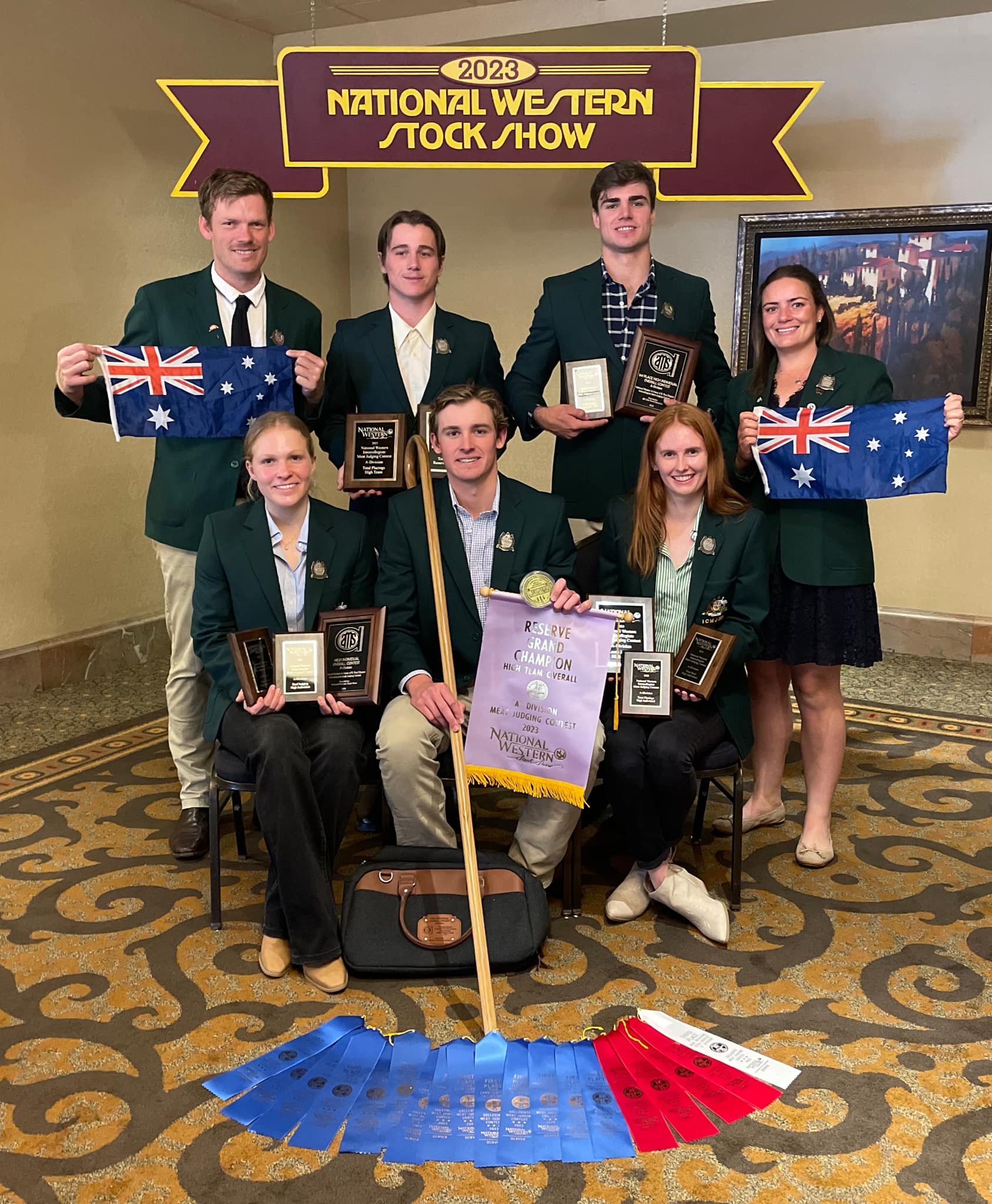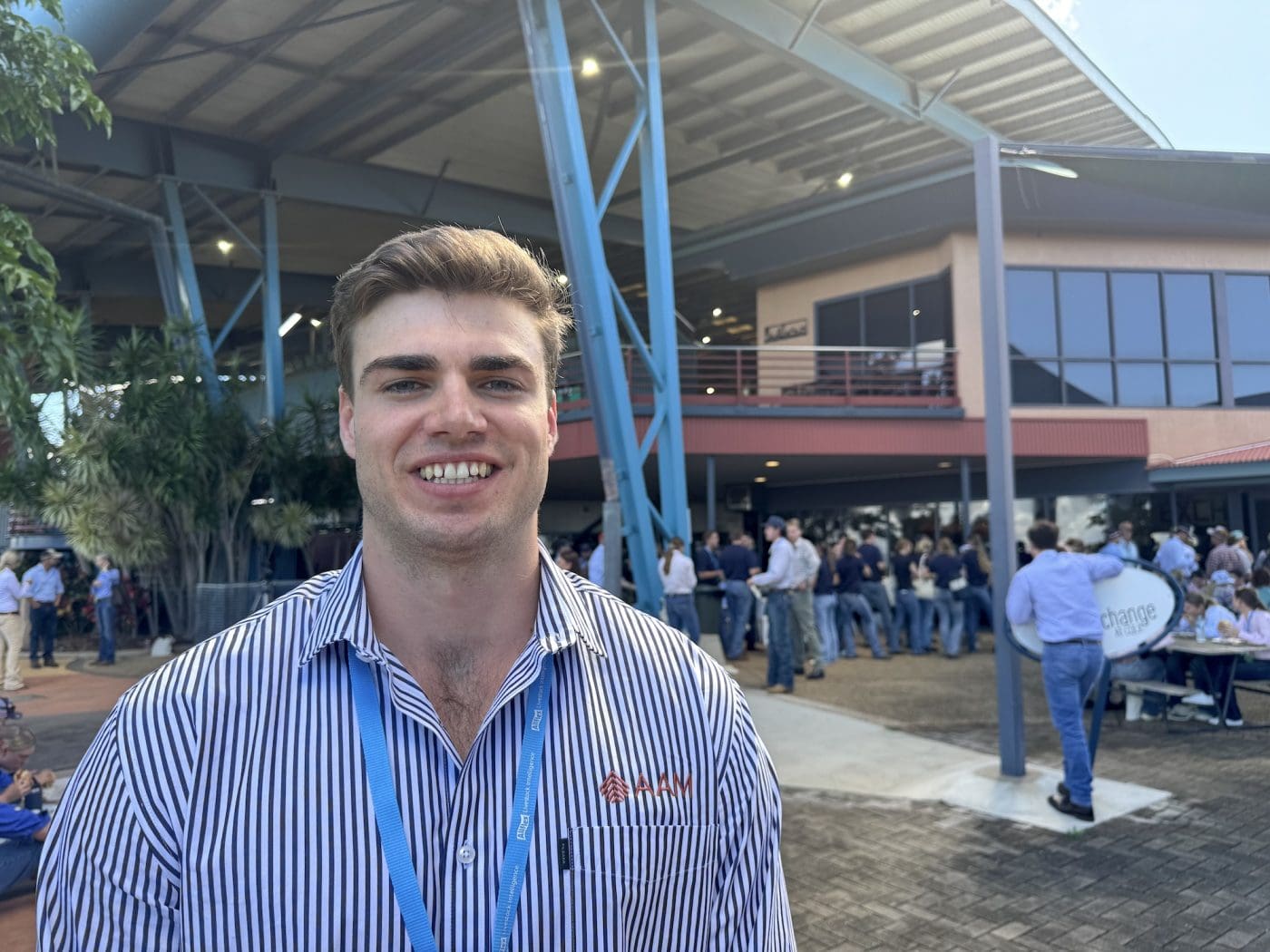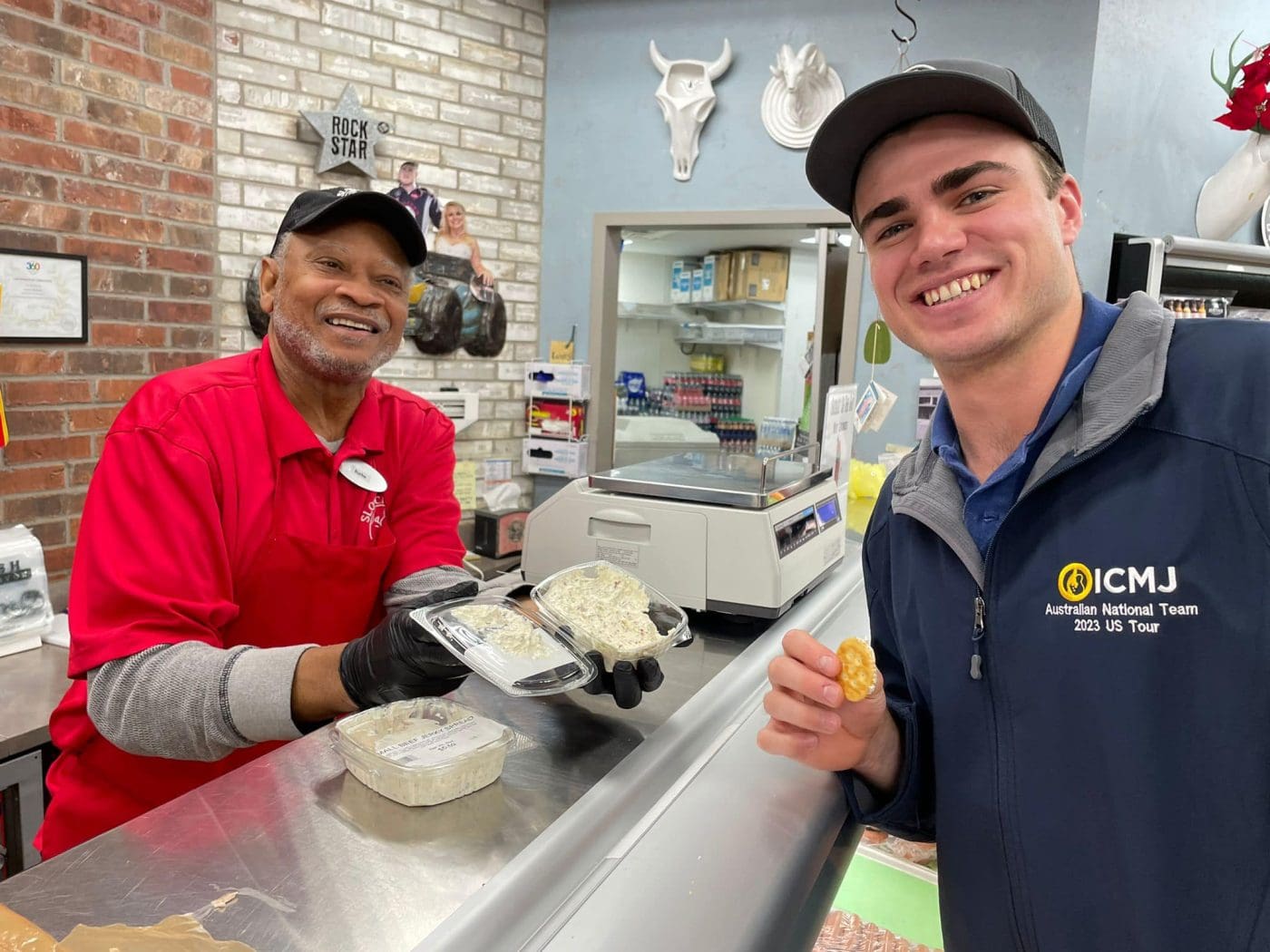AAM’s SAM Turner grew up in Brisbane but is living proof that if you’re interested in agriculture and a have passion to learn, there are no limits to what you can achieve in the sector.
Sam’s interest in agriculture began during childhood trips from the city to visit family and friends with properties in western Queensland.
His love of mustering and driving tractors convinced him to pursue a career in agriculture, which led him to study agribusiness and agricultural science at the University of Queensland.
During his degree he also managed to gain invaluable hands-on industry experience working on Stanbroke’s Qld Gulf station Augustus Downs and at the Stanbroke Beef processing plant near Gatton.
On the advice of friends at university he applied to join the Intercollegiate Meat Judging Program in his final year of study – an experience he now credits as being almost as valuable as his university degree.
He earned a place in the UQ meat judging team and attended ICMJ conferences and competitions in Rockhampton and Wagga, where he won selection in the national five-member 2022 Australian meat judging team.
In its subsequent tour to the US, the Australian team achieved a high level of success, finishing second overall at the National Western Meat Judging Contest in Denver, Colorado, and third overall in the Southwest Invitational Meat Judging Contest in Lubbock, Texas.
In Denver the Australian team also top-scored in the lamb judging section, and also produced exceptional individual results, with Sam’s good mate and fellow UQ and Australian team member Lawton Elliott taking out 1st Individual – Total Contest while Sam finished third.

The 2022 Australian ICMJ team finished its US red meat industry tour with a swag of team and individual awards.The Australian team comprised Austin Smith (Murdoch University), Lawton Elliott (University of Queensland), Jasmine Wholton (Charles Sturt University), Rachel Franklin (University of Sydney), and Samuel Turner (University of Queensland), and was coached by Melanie Smith and Nick van den Berg.
Sam and Lawton also spent several weeks either side of the three-week ICMJ tour visiting and working on cattle and sheep farms in Texas, Kansas, Colorado, and Nebraska.
A careers expo at the ICMJ conference also opened the door to Sam’s current position as a full-time member of the AAM Investment Group’s graduate program.
The program offers university graduates a full immersion via four-month rotations working in each of the five diverse sectors (timber, cropping, poultry, sheep and cattle) of AAM’s portfolio of agricultural assets across four States and Territories.
Sam said the ICMJ experiences and the AAM graduate program have been “life changing”.
“I have learned so much,” he said.
“Meeting so many great young passionate people, and being able to connect with a lot of industry leaders and learn from them and their experience has been great.”
Sam said he is excited about future opportunities on the processing side of the supply chain including the potential that exists to develop new red meat brands.
He said he would urge other university students to apply for the ICMJ.
“I almost got as much out of ICMJ as I did out of my university degree,” he said.
“It is probably a part of the industry not a lot of people get to see in terms of the beef processing, to see where your cattle go from the farm to processing and how our food is created.”
During his trip to the US in early 2023, Sam investigated the similarities and differences between the livestock traceability systems in both countries.
He found that despite the many advantages of Australia’s single mandatory national system that tracks cattle from birth to slaughter, the US systems feature some elements which the Australian industry could incorporate to enhance food and animal product traceability systems.
For Australia to maintain its world-leading traceability standards and meet growing consumer demands, he believes the NLIS the program could be expanded to include other areas of the supply chain such as packaged meats, wool and leather and other animal classes.
“Animal Health Australia is currently exploring the possibility of creating traceability systems to cover a wider range of animals such as camels, camelids, and deer,” he said.
“This could also cover other production animals as well as domestic livestock such as horses.”
Sam’s full report is available here.


